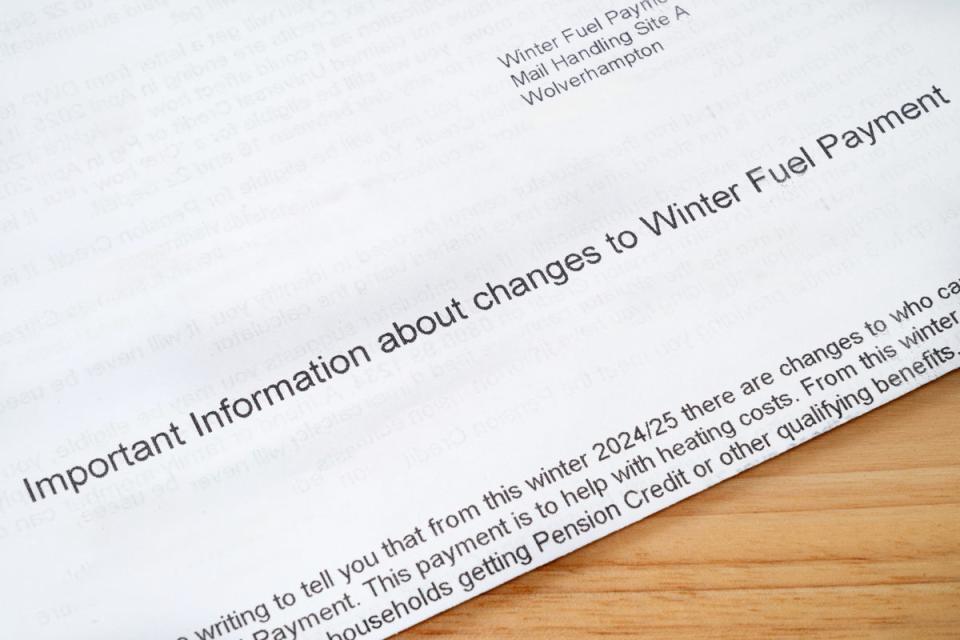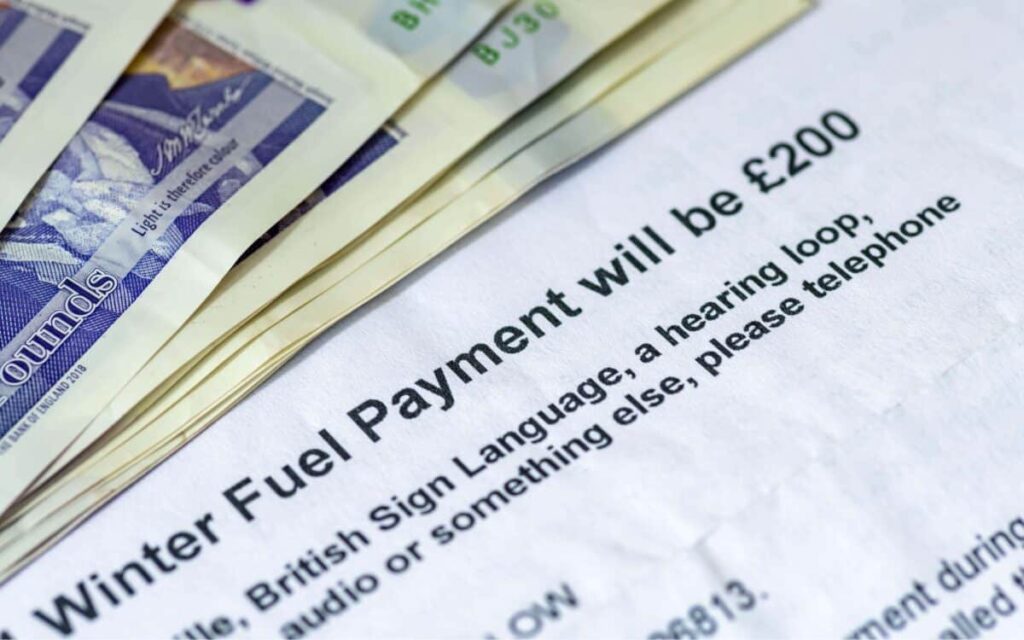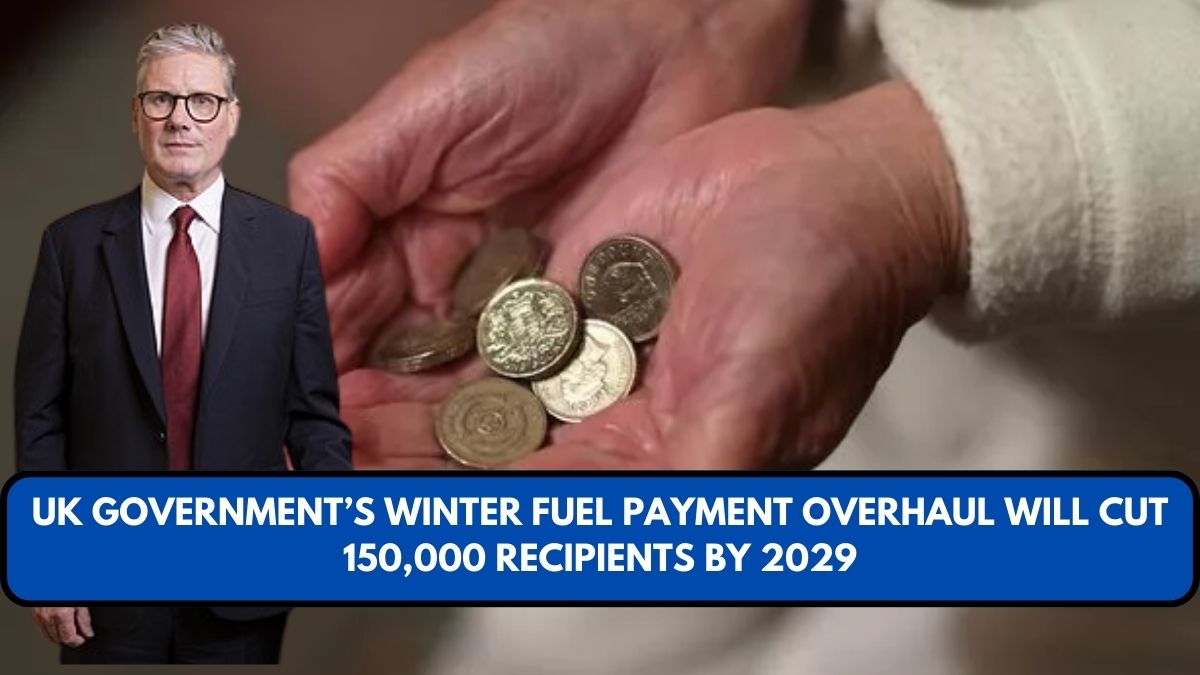In a significant shake-up to the UK’s Winter Fuel Payment (WFP) system, a projected 150,000 fewer pensioners are expected to qualify for the payment by 2029, as a result of new eligibility restrictions. These changes are set to impact the poorest seniors, leaving many facing financial hardship during the winter months.
New Eligibility Restrictions
Starting in the 2024/25 winter season, the Winter Fuel Payment, a vital form of support for pensioners struggling with rising energy costs, will no longer be available to all seniors. Instead, it will be restricted to those receiving Pension Credit, a means-tested benefit designed for low-income pensioners.
The Pension Credit requirement is part of the UK government’s broader policy to target assistance to those who need it most.
Previously, WFPs were given to all pensioners over a certain age, with no means test or specific income requirements. Now, however, this system is being overhauled, and only those who meet the criteria for Pension Credit will be eligible.
This change is expected to reduce the number of people receiving the benefit by around 150,000 over the next five years.

Projected Decline in Recipients
The Department for Work and Pensions (DWP) has estimated that by 2029, the number of recipients of Pension Credit will fall from 1.365 million to around 1.210 million.
The reduction is due to several factors, including the increasing state pension age, the improved financial situation of newer retirees, and a lower number of eligible individuals qualifying for means-tested benefits.
This shrinking pool of eligible pensioners will ultimately result in fewer seniors receiving the Winter Fuel Payment.
As many as 150,000 pensioners who would have previously qualified for the payment are set to miss out, raising concerns about the welfare of vulnerable seniors during the colder months.
Critics argue that the new eligibility restrictions could lead to an increase in fuel poverty, leaving many pensioners struggling to pay for their heating during the winter.
Financial Strain on Vulnerable Pensioners
The policy change comes at a time when the cost of living, particularly energy bills, has been rising steeply. Winter Fuel Payments provided essential relief to many pensioners, but with the new rules in place, thousands are set to lose this vital lifeline.
The DWP has claimed that the changes will better target those who truly need help, but critics argue that many pensioners just above the threshold for Pension Credit will find themselves in a precarious financial situation.
In fact, some advocacy groups, including Age UK, have raised alarms about the rising number of older people who could find themselves in energy poverty due to the policy shift.
These seniors will not only lose out on WFPs but will also face the pressure of managing high heating costs without the same financial support they once received.
The removal of WFP eligibility for those not receiving Pension Credit could leave up to 100,000 additional pensioners at risk of financial hardship each year.
With the winter months being particularly harsh on those living on fixed incomes, many of these pensioners could struggle to stay warm and healthy.
Charitable Support and Local Initiatives
In response to these cuts, some local councils and charities have stepped in to provide assistance to pensioners. Tower Hamlets council, for instance, has announced plans to provide grants of up to £175 to around 5,000 pensioners who will no longer be eligible for Winter Fuel Payments.
This effort aims to offer some financial relief, though the support is far from universal, and many other areas are not providing similar assistance.
Age UK and other organizations are urging the government to reconsider its decision and find ways to ensure that more vulnerable seniors are not left behind.
The charity has called for a broader review of the links between Pension Credit and Winter Fuel Payments, arguing that this relationship leaves too many pensioners excluded from the assistance they need to manage rising energy costs.
Calls for Policy Reconsideration
As the Winter Fuel Payment eligibility cuts continue to gain traction, there has been mounting pressure from advocacy groups for the government to reassess its approach. Critics argue that targeting low-income pensioners with Pension Credit is a narrow and insufficient solution to the broader issue of fuel poverty among the elderly.
Many pensioners who miss out on the Winter Fuel Payment, even though they may be just above the income threshold for Pension Credit, could face significant challenges in meeting their heating bills. With energy costs projected to rise, experts are warning that the decision to reduce Winter Fuel Payments could exacerbate existing problems of energy poverty and inequality among pensioners.
The future of Winter Fuel Payments is now under intense scrutiny, and unless the government revisits its policy, many pensioners will likely continue to face financial challenges during the coldest months of the year.

Conclusion
The UK’s decision to tighten eligibility for Winter Fuel Payments has sparked controversy and concern, particularly among vulnerable pensioners who will no longer qualify for this vital financial assistance. While the government argues that the change will better target those who need help most, the new restrictions will leave thousands of pensioners without the support they once relied on to get through the winter months.
With rising energy costs and an increasing number of pensioners at risk of fuel poverty, the calls for the government to reconsider the changes to Winter Fuel Payments are only growing louder. As this policy unfolds, it will be essential for the government to ensure that those who need help the most are not left out in the cold.
This article has been carefully fact-checked by our editorial team to ensure accuracy and eliminate any misleading information. We are committed to maintaining the highest standards of integrity in our content.

Deepak Grover is a dedicated content writer at OTE News, specializing in government affairs, public policy, and current events. With a keen eye for detail and a passion for factual reporting, he ensures readers receive accurate and insightful news. Deepak holds a degree in Political Science and has experience in research-driven journalism.
When not writing, he enjoys reading historical books, exploring hiking trails, and staying updated with global political trends. His commitment to ethical journalism makes him a trusted voice at OTE News.




